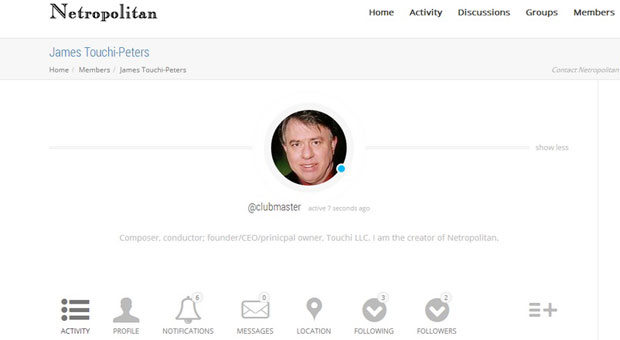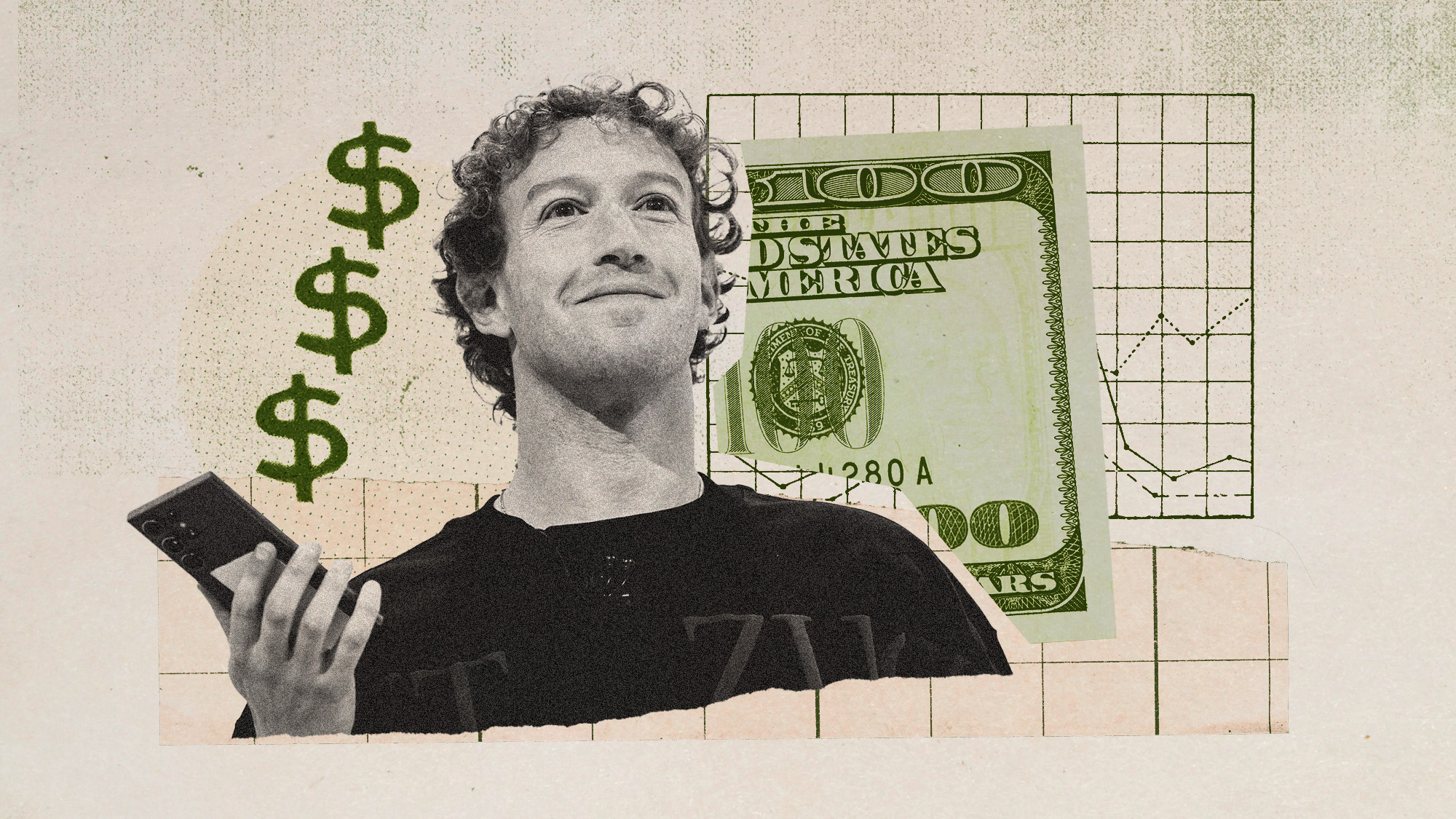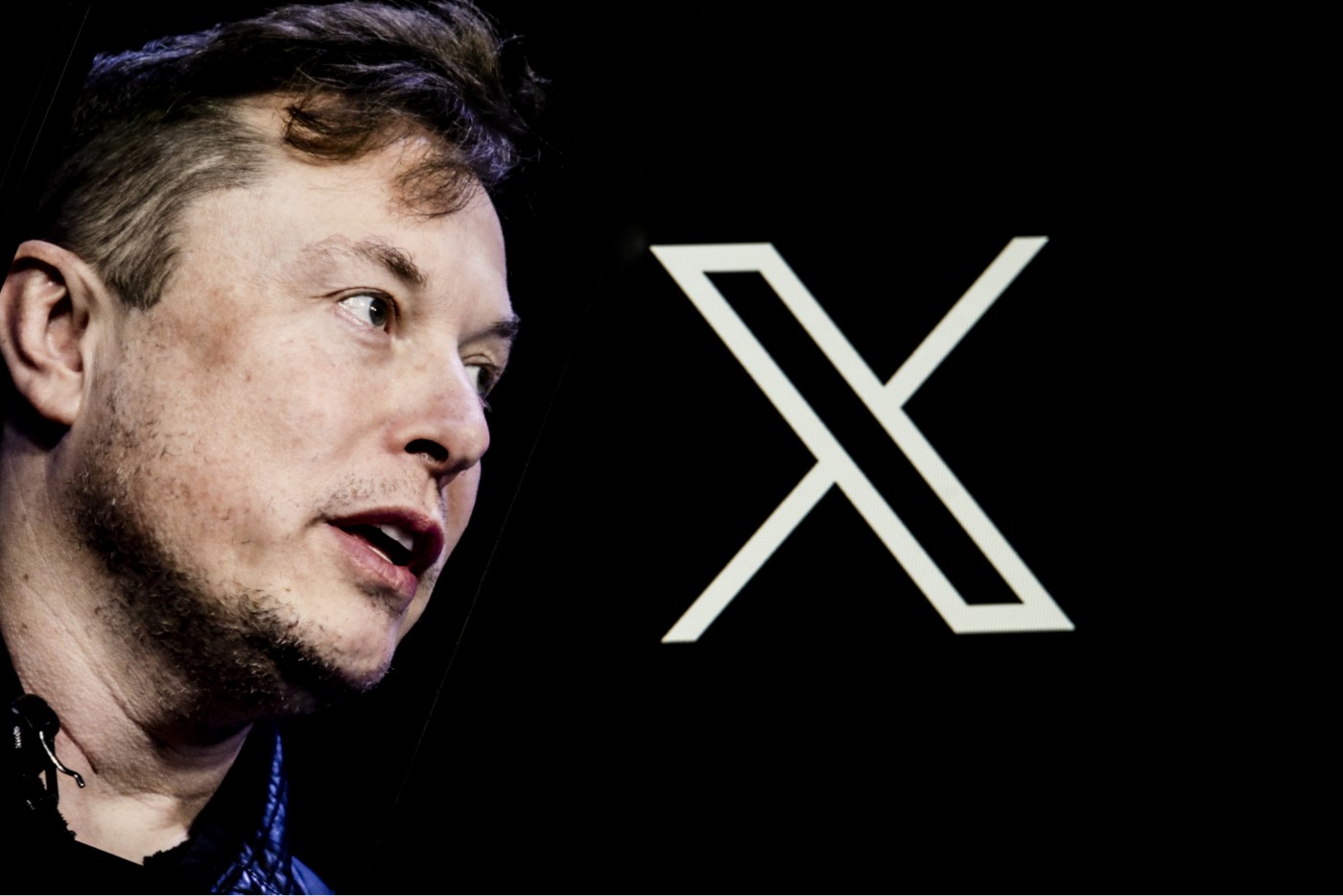Netropolitan: the new Facebook for rich people?
Your privacy is 'guaranteed' – but would you pay $9000 to talk to people about fine wines and classic cars?

A free daily email with the biggest news stories of the day – and the best features from TheWeek.com
You are now subscribed
Your newsletter sign-up was successful
Netropolitan, an elite social networking site billed as an "online country club", has been launched.
For an initial cost of $6,000 and subsequent annual fees of $3,000, members can "meet like-minded individuals from across the globe who share your lifestyle and interests", the website boasts.
"I believe there is a need and an audience for this service," its founder, Manhattan-based composer James Touchi-Peters, told CNN.
The Week
Escape your echo chamber. Get the facts behind the news, plus analysis from multiple perspectives.

Sign up for The Week's Free Newsletters
From our morning news briefing to a weekly Good News Newsletter, get the best of The Week delivered directly to your inbox.
From our morning news briefing to a weekly Good News Newsletter, get the best of The Week delivered directly to your inbox.
In order to join, you need to be over the age of 21 and your identity will need to be verified by the company. You will also need to pay the full sum up-front, but don't worry – they accept all major credit cards.
What do you get for all that money?
Like Facebook and many other social networking sites, it allows users to post status updates, share photos and videos and send private messages. It also features a CloudDrive, where users can store unlimited data, as well as discussion forums where users can chat about "everything from fine wines to classic cars to vacation destination recommendations".

Why would anyone hand over $9,000 for that?
A free daily email with the biggest news stories of the day – and the best features from TheWeek.com
It allows you to connect with other (rich) people
Touchi-Peters said he wanted to create "an environment where you could talk about the finer things in life - without backlash."
So fear not, "Netropolitan is here to save you from having to hob-knob with undesirable 99 percenters," writes Chloe Albanesius for PC Mag.
Avoid those pesky ads
The website will not allow external ads to be placed on the website and round-the-clock moderators will protect you from any potential spam.
Your privacy is guaranteed
"We simply cannot stress enough how important preserving our members' privacy is to us," the company states.
The company promises that user names and profiles will not be indexed on Google like those on Facebook and Twitter and upon registration, users must sign an agreement prohibiting them from revealing members of the group.
-
 The environmental cost of GLP-1s
The environmental cost of GLP-1sThe explainer Producing the drugs is a dirty process
-
 Greenland’s capital becomes ground zero for the country’s diplomatic straits
Greenland’s capital becomes ground zero for the country’s diplomatic straitsIN THE SPOTLIGHT A flurry of new consular activity in Nuuk shows how important Greenland has become to Europeans’ anxiety about American imperialism
-
 ‘This is something that happens all too often’
‘This is something that happens all too often’Instant Opinion Opinion, comment and editorials of the day
-
 Is social media over?
Is social media over?Today’s Big Question We may look back on 2025 as the moment social media jumped the shark
-
 Social media: How 'content' replaced friendship
Social media: How 'content' replaced friendshipFeature Facebook has shifted from connecting with friends to competing with entertainment companies
-
 Meta on trial: What will become of Mark Zuckerberg's social media empire?
Meta on trial: What will become of Mark Zuckerberg's social media empire?Today's Big Question Despite the CEO's attempt to ingratiate himself with Trump, Meta is on trial, accused by the U.S. government of breaking antitrust law
-
 What does an ex-executive's new memoir reveal about Meta's free speech pivot?
What does an ex-executive's new memoir reveal about Meta's free speech pivot?Today's Big Question 'Careless People' says Facebook was ready to do China censorship
-
 What's Mark Zuckerberg's net worth?
What's Mark Zuckerberg's net worth?In Depth The Meta magnate's products are a part of billions of lives
-
 Is the AI bubble deflating?
Is the AI bubble deflating?Today's Big Question Growing skepticism and high costs prompt reconsideration
-
 How social media is limiting political content
How social media is limiting political contentThe Explainer Critics say Meta's 'extraordinary move' to have less politics in users' feeds could be 'actively muzzling civic action'
-
 Twitter's year of Elon Musk: what happens next?
Twitter's year of Elon Musk: what happens next?In the Spotlight 'Your platform is dying', says one commentator, but new CEO is aiming for profitability next year